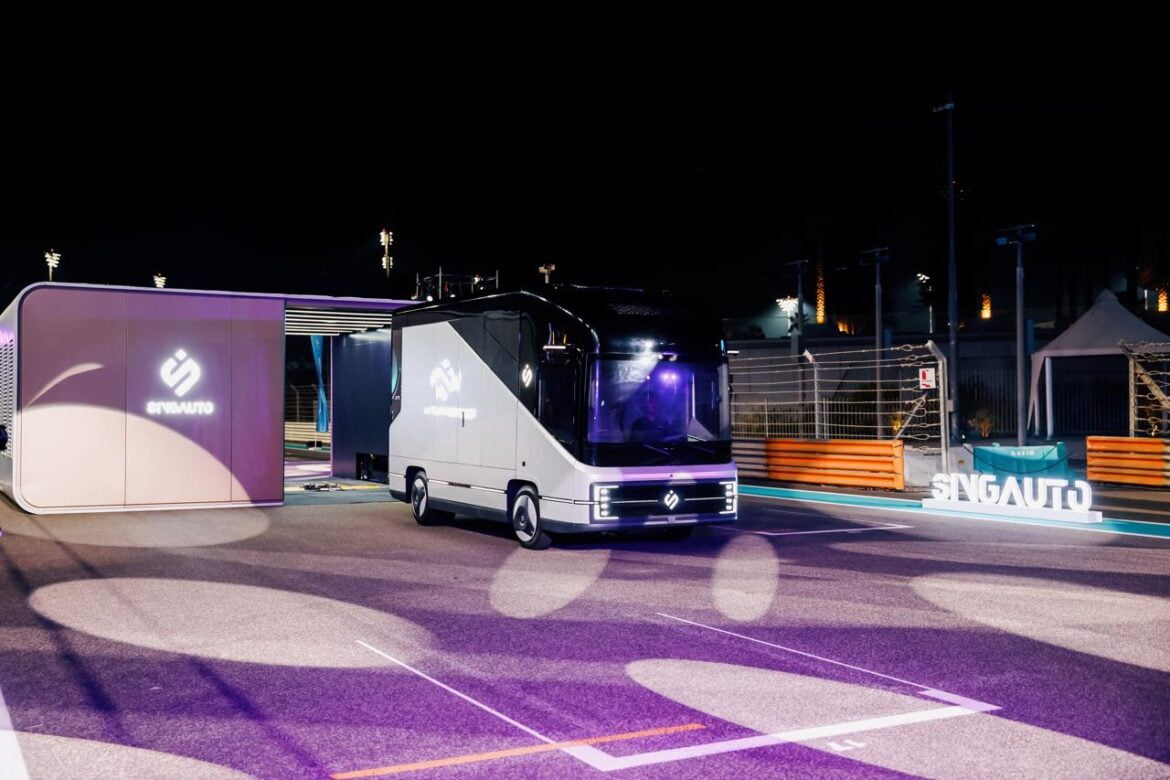Globally, logistics and transport contribute over a third of emissions, and that figure will continue to grow without action. Indeed, industry decarbonisation is imperative, and according to the International Energy Agency (IEA), if the world is to meet net-zero targets, transport emissions must fall 25 per cent by 2030.
Fleet electrification is now considered a key lever in the industry’s decarbonisation journey, including in the cold chain.
However, as it stands, the industry has a significant way to go to reduce its carbon emissions.
Against this backdrop, Singapore-based EV maker SingAuto recently made its regional debut in the UAE with the global launch of the SingAuto S1, the company’s first new energy cold chain logistics vehicle.
At the event, CEO Chris Chen also announced plans to build what he claimed will be “the world’s largest commercial EV industrial district” in the UAE.
SingAuto UAE Entry
The commercial vehicle, unveiled in Abu Dhabi last week, integrates autonomous driving capabilities and advanced cold chain logistics technology with an AI-powered digital platform, multi-temperature control, independent suspension, and a cloud platform for fleet management.
Speaking on the sidelines of the event, Chen told ESG mena that while EV companies have come and gone in the UAE, SingAuto has an “entire product cycle plan” for the coming five to ten years. The CEO said this includes the kind of models, platforms, and technologies the company wants to bring in.
Chen added that its global investors span from South Korea and Singapore to the UAE, with the company recently raising USD 45 million in its Series A round.
Now, the company has its sights set on significant regional expansion. “We plan to build the world’s largest commercial EV industrial district here in the UAE. We already applied to the local UAE government and already got approved,” Chen said.
Building Local Capacity
Set to launch in the UAE late next year, Chen said there will be a strong emphasis on local assembly.
“I have a very clear plan to build the capacity here,” outlined Chen, adding: “I want to demonstrate my commitment to the local market.”
According to the company head, SingAuto seeks to enhance the local industry’s capability and workforce, providing more effective local service, quicker response times and after-sales service.
Charging Infrastructure and Changing Mindsets
Chen, an industry veteran who has worked across various roles over the course of the last 20 years, from engineer to C-suite executive, underscored the importance of shifting mindsets to facilitate the greater adoption of EVs.
Here, he highlighted the role of government policy in driving greener behaviour. Part of this is constructing the infrastructure required to accelerate change.
At present, the UAE ranks seventh globally for electric mobility readiness and first in the MENA, and in recent years, there has been a nationwide push to ramp up charging infrastructure.
This year, the UAE Ministry of Energy and Infrastructure (MoEI) and Etihad Water and Electricity (Etihad WE) unveiled UAEV, a joint venture and the first EV charging network fully owned by the government.
The JV aims to install 100 charging units by the end of 2024, with the figure rising to 1,000 by 2030.
More regionally, Abu Dhabi has launched the Smart and Autonomous Vehicles Industry cluster, aimed at accelerating the deployment of smart and autonomous vehicles.
Indeed, Chen outlined that the UAE’s position as the economic and innovation hub of the Middle East and its movement toward clean energy were key factors in choosing the country for its base and the location of its planned commercial EV industrial district.
“Our focus on sustainability and innovation, aligning with the UAE’s goal of 44% clean energy by 2050, will redefine the logistics industry. We aim to create a more sustainable, innovative, and efficient logistics landscape through advanced technologies and global partnerships,” said Chen.



